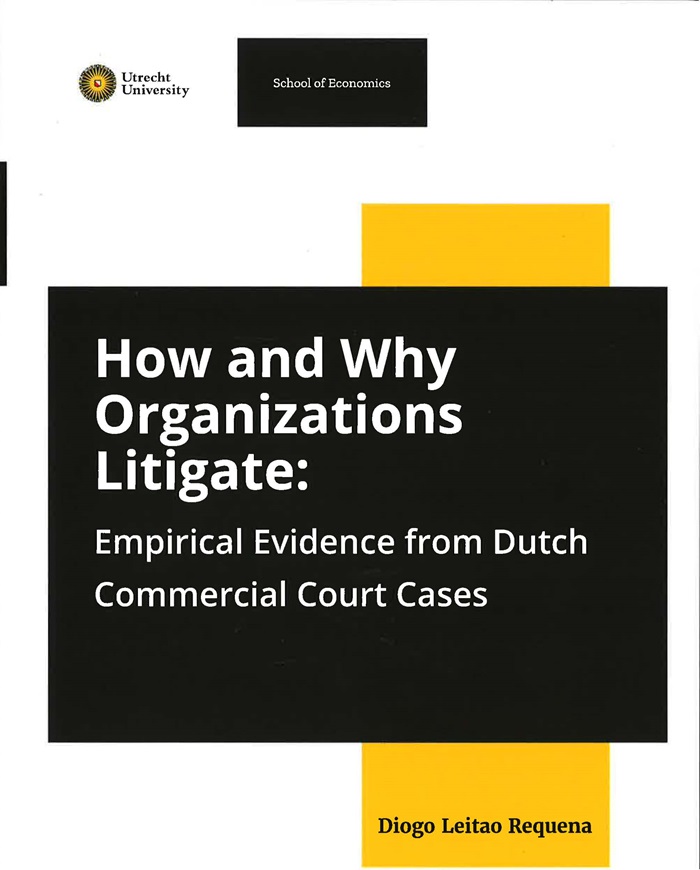
The goal of Diogo Leitao Requena’s dissertation is to understand how and why firms and other institutional organizations litigate in Dutch civil courts. Particularly, commercial cases involving legal persons. Leitao Requena explores three different questions on this topic. First, in the second chapter, the dissertation aimed to two main sub-questions: i) is this decline cyclical, and thus, potentially temporary, or structural, and ii) if it is structural, which are these structural factors? To answer the first question, Leitao Requena uses quantitative methods while taking advantage of the intrinsic legal-economic nature of two different types of cases, debt collection and tort. The former should capture cyclical factors linked to the business cycle, while the latter should capture non-cyclical factors. To answer the second question, interviews with legal experts were conducted. The results indicate that the decline is both cyclical and structural. Furthermore, the thesis concluded that structural factors such as increasing litigation costs, better case outcome predictability and the increased centralization of firms’ legal decisions contributed to this decline.
Second, in the third chapter, is studied whether engaging in commercial litigation (as a plaintiff or defendant) increases the odds of having a bankruptcy proceeding (as a defendant). Different reasons could link a commercial case to bankruptcy, such as costs incurred during litigating or past financial problems that lead to the emergence of the commercial case itself.
Leitao Requena found that defendants have a relatively high rate of bankruptcy proceedings of about 4% in the semester after the commencement of a commercial court case. He also hypothesized that the inability to recover damage or debt from a bankrupt firm could lead to the bankruptcy of harmed parties or creditors themselves. However, he did not find a strong indication of a bankruptcy contagion effect. Plaintiffs who have cases against financially distressed defendants did not have significantly more bankruptcy proceedings themselves in comparison to other plaintiffs. Third, in the fourth chapter, the question of whether litigation experience matters for the litigation strategy employed by organizations is analyzed. To be more specific, the question whether more experienced organizations have longer or shorter court cases is explored. The results indicated that more experienced litigants do not have longer cases as defendants. This could be a worrisome indication that experienced players use courts to postpone the resolution of unfavourable disputes. It is found, however, that, litigants with substantial experience in the role of plaintiff, take shorter in cases as a plaintiff and longer in cases as a defendant. Litigants experienced in the role of defendant, take longer in cases as a plaintiff and shorter in cases as a defendant. This leads to the interpretation that this as a learning effect taking place in courts, litigants can be more efficient and aim for shorter and less costly cases in the cases they are used in litigating. The evidence gathered indicates a worrisome scenario for smaller firms in the Netherlands, litigation costs seem to be increasing, while the lack of experience may result in inevitable longer (and costly) cases.
Leitao Requena defended his thesis May 9th, 2025, at Utrecht University. Supervisors: prof. Wolter Hassink, prof. Frans van Dijk and prof. Remme Verkerk.
Diogo Leitao Requena
How and Why Organizations Litigate. Empirical Evidence from Dutch Commercial Court Cases
Utrecht University 2025, 161 p.
ISBN 978 94 91870 66 8 The thesis is published in the repository of the UU.

